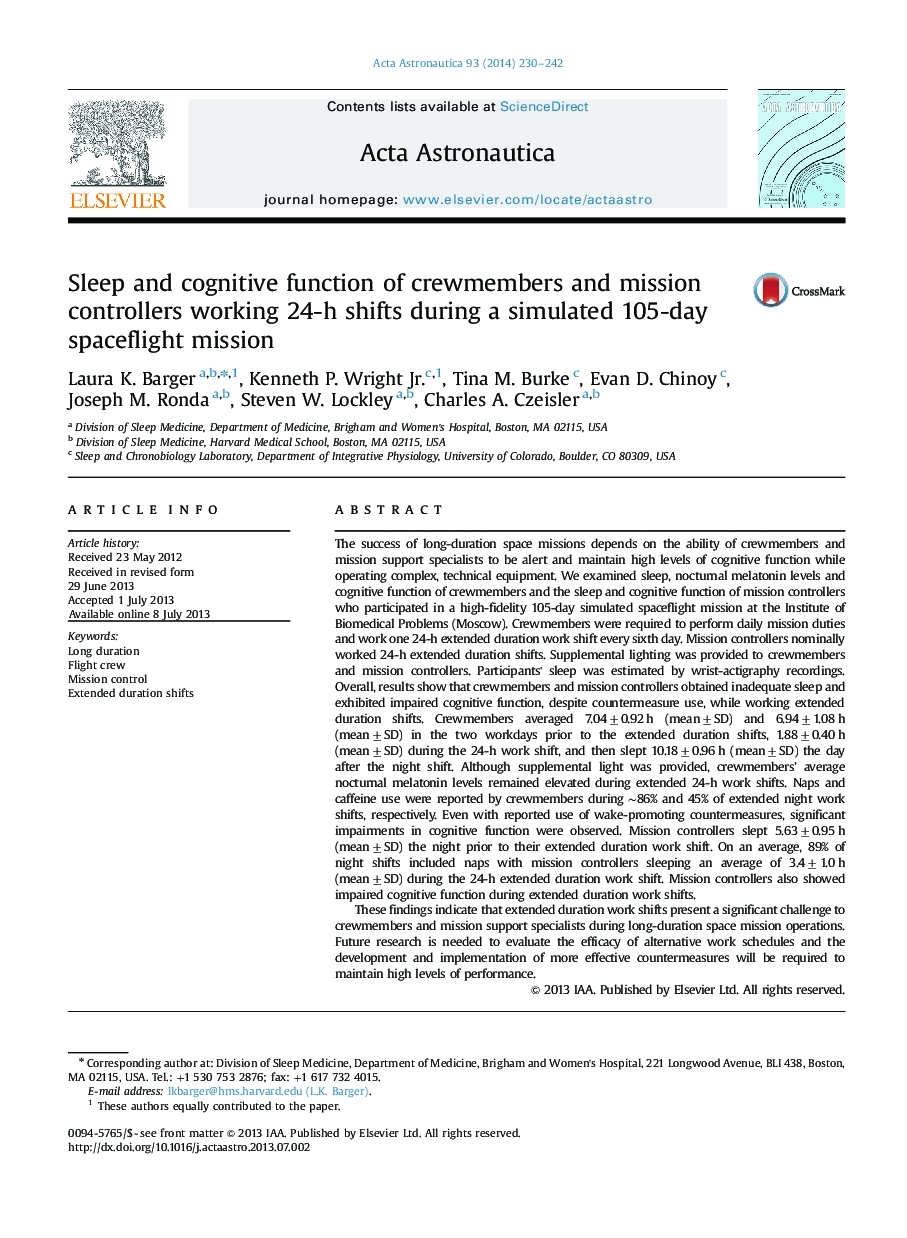| کد مقاله | کد نشریه | سال انتشار | مقاله انگلیسی | نسخه تمام متن |
|---|---|---|---|---|
| 1714882 | 1519958 | 2014 | 13 صفحه PDF | دانلود رایگان |
•
• Sleep deficiency was associated with crew members and mission controllers working extended duration shifts during 105-day mission.
• Cognitive function was impaired during operational extended duration work shifts.
• Alternative work schedules should be developed for long duration spaceflight missions.
The success of long-duration space missions depends on the ability of crewmembers and mission support specialists to be alert and maintain high levels of cognitive function while operating complex, technical equipment. We examined sleep, nocturnal melatonin levels and cognitive function of crewmembers and the sleep and cognitive function of mission controllers who participated in a high-fidelity 105-day simulated spaceflight mission at the Institute of Biomedical Problems (Moscow). Crewmembers were required to perform daily mission duties and work one 24-h extended duration work shift every sixth day. Mission controllers nominally worked 24-h extended duration shifts. Supplemental lighting was provided to crewmembers and mission controllers. Participants' sleep was estimated by wrist-actigraphy recordings. Overall, results show that crewmembers and mission controllers obtained inadequate sleep and exhibited impaired cognitive function, despite countermeasure use, while working extended duration shifts. Crewmembers averaged 7.04±0.92 h (mean±SD) and 6.94±1.08 h (mean±SD) in the two workdays prior to the extended duration shifts, 1.88±0.40 h (mean±SD) during the 24-h work shift, and then slept 10.18±0.96 h (mean±SD) the day after the night shift. Although supplemental light was provided, crewmembers’ average nocturnal melatonin levels remained elevated during extended 24-h work shifts. Naps and caffeine use were reported by crewmembers during ∼86% and 45% of extended night work shifts, respectively. Even with reported use of wake-promoting countermeasures, significant impairments in cognitive function were observed. Mission controllers slept 5.63±0.95 h (mean±SD) the night prior to their extended duration work shift. On an average, 89% of night shifts included naps with mission controllers sleeping an average of 3.4±1.0 h (mean±SD) during the 24-h extended duration work shift. Mission controllers also showed impaired cognitive function during extended duration work shifts.These findings indicate that extended duration work shifts present a significant challenge to crewmembers and mission support specialists during long-duration space mission operations. Future research is needed to evaluate the efficacy of alternative work schedules and the development and implementation of more effective countermeasures will be required to maintain high levels of performance.
Journal: Acta Astronautica - Volume 93, January 2014, Pages 230–242
